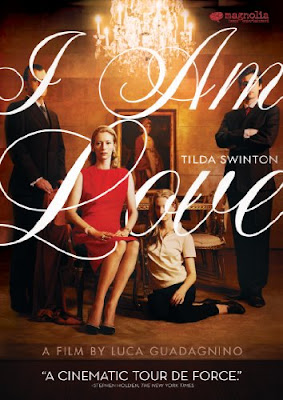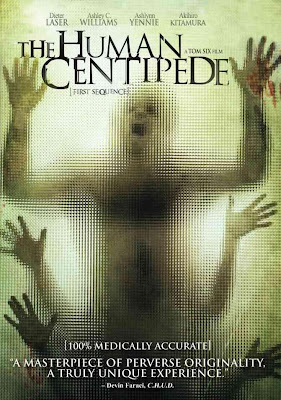The Magician (Criterion)
Standard list price: $29.95
Release date: Oct. 12
Ask 10 film scholars to name the 10 most important Ingmar Bergman films, and it’s quite likely The Magician wouldn’t make any of their lists. This is both a testament to the director’s career-long consistency in producing masterpieces and perhaps a grave oversight. Where anointed art-cinema benchmarks like The Seventh Seal and Cries and Whispers can today feel like leaden, portentous slogs, The Magician is both light on its feet and terrifyingly moody, more surface-enjoyable than the vast majority of the director’s canon while still managing to reinforce many of the metaphysical themes prevalent in his most humorless dramas.
The retrospective neglect of The Magician – mistranslated from its original Swedish title The Face – is doubly surprising considering the critical success of the film in its initial release, winning top prizes at the Venice Film Festival and the British Academy Awards. Stateside, however, it’s been one of the few remaining Bergman titles to not have a Region 1 release. Finally arriving on DVD via a luminous Criterion transfer, The Magician is now poised, with this exposure to a new generation of film buffs, to become the cult classic it always should have been.
Max von Sydow leads the cast of Bergman regulars as the title character, a supposedly mute conjurer by the name of Vogler, whom we first see leading a rickety caravan toward the baroque home of a Swedish consul. Charlatans and snake oil salesmen, Vogler and his team of assistants are about to put their misleading advertisements – promising legitimate mind-reading, profound illusions and the conjuring of spirits – to the test when they perform for the consul, a doctor and a police commissioner. The head skeptic is Dr. Vergerus (Gunnar Bjornstrand), whose belief in science trumps the existence of all things inexplicable or supernatural. He confronts the magician with undisguised scorn, establishing himself as the concrete-thinking nemesis to Vogler’s architect of the netherworld.
What transpires is an inspired, Gothic horror romp – but only after about a half-hour of jaunty sex comedy, courtesy of two giggly Swedish girls and the doctor’s supply of love potions and truth serums. The humor isn’t the stuff of high art, but it’s awfully funny, especially for its time, and it’s fascinating to watch a director immortalized for his unblinking seriousness working so deftly in comedic scenarios that wouldn’t be out of place in a Jerry Lewis picture. Though Bergman studies often overlook this element, The Magician is not alone in its sense of humor. It was released in 1958, a few years after Smiles of a Summer Night, and a few years before The Devil’s Eye and For All These Women Now, Bergman comedies that hardly fit the director’s cerebral legacy (and, unsurprisingly, still await Region 1 transfers).
But The Magician was also released a couple of years prior to The Virgin Spring, the most disturbing and nerve-rattling film of Bergman’s career. Changing courses mid-stream, the movie eventually wends into a groove of haunting atmospherics and spooky visual trickery as Vergerus’ entire belief system is threatened by Vogler’s apparent magic.
Lest you forget you’re watching a Bergman art film amid all the laughs and scares, The Magician is, per usual, an inquisition of God, albeit a more playful one than, say, The Silence. The movie’s metaphysical elements relate directly to the presence of an omniscient deity, and it contains lines that could just as easily been plucked from his more somber films: “God is silent while men babble on…”
Bergman himself has considered his profession to be that of a conjurer of magical images, and several astute critics have interpreted Vogler as the filmmaker’s on-screen surrogate, with Vergerus the stand-in for the director’s numerous detractors. Bergman scholar Peter Cowie, in an accompanying video essay included in the special features, argues this point while providing a trove of perceptive information on the film’s back story. Contemporary French filmmaker Olivier Assasyas offers an eloquent take on the same subject in a 1990 article in Cahiers du Cinema that’s reprinted in the booklet for this release, in which he adds that The Magician is Bergman’s “underground masterpiece.” Let’s hope it doesn’t stay underground much longer.
For the record, if I were one of those 10 film scholars ranking Bergman’s work, here would be my top 10.
10. Saraband
9. Hour of the Wolf
8. Fanny and Alexander
7. Through a Glass Darkly
6. The Magician
5. Monika
4. The Virgin Spring
3. Winter Light
2. Persona
1. Scenes From a Marriage

The Secret of Kells (Flatiron Films)
Release date: Oct. 5
SLP: $21.49
I won’t make any friends with this review, but I found this lovable animated feature to be an out-and-out bore. Achieving early prominence with an Oscar nomination for Best Animated Feature long before it was distributed to the majority of the public, The Secret of Kells has quickly become a cult favorite for its crude yet dazzling animation style – an anti-Pixar, anti-3D throwback – as well as its seemingly epic story. It’s a Tolkeinian fantasy, rooted in Celtic mythology, about a 9th-century boy who becomes the proverbial Chosen One when a master illuminator needs his help to save a monastery from marauding Vikings. This bookish adventure is all a bunch of talky yada yada yada made only slightly engaging by the admittedly unique and disjointed animation. But it’s troubling when a 75-minute cartoon feels like it’s taking three hours – despite, or perhaps because, of the fact that there’s enough material in this film to comprise three features.
I Am Love (Magnolia)
SLP: $20.99
Release date: Oct. 12
To best approach Luca Guadagnino’s I Am Love is to look beyond cinema. Channeling the emotional extremity of Italian opera, the layered structure of classic symphonies and the detailed sweep of the Russian novel, this torrid peek into the personal affairs and betrayals of a crumbling bourgeois family chastises its wealthy industrialists while providing one of them with a painstaking exit strategy. From the movie’s opening tableau – a lugubrious, snow-capped gathering at Milan mansion in which the Recchi family’s oldest industrialist will retire and name his successor – through the start of an unpredictable affair, a passionate respite in London, an unspeakable tragedy back home and finally a phoenix-like rise from the family’s metaphoric ashes, I Am Love lives up to its boldly presumptuous title. Cooking scenes are filmed like sex scenes, and the sex scenes are presented as if sex had never been filmed before. Guadagnino has the chutzpah to cut away from his poetic montages of fragmented, scintillating flesh to show us the steamy flora and fauna of the surrounding land, a gesture that could have been a corny attempt at soft-porn impressionism but instead suggests the epic totality of the characters’ actions. I Am Love’s plot is a succession of unpredictable game-changers, and its bravura style pays homage to a century’s worth of Italian art while charting a new, inspirational path forward. And as for Tilda Swinton, speaking fluent Italian in the leading role? She’s simply a revelation.
The Human Centipede (First Sequence) (IFC)
Release date: Oct. 5
SLP: $14.99
When something is hyped as being one of the grossest, sickest, most vile things you’ll ever see, you should be wary – not because you may end up losing your lunch in the aisle of the cinema (or in this case, in the discomfort of your own home) but because you’ll probably be disappointed at the banal tameness of it all. Tom Six’s The Human Centipede (First Sequence) is one of those movies, a Z-grade schlock-horror picture about a mad German doctor (Dieter Laser) who sews together three tourists, mouth-to-anus, to form the titular experiment. The result is unpleasant to look at, to be sure, but it’s devoid of artistic merit, and it’s no more vomit-inducing than countless snuff offerings from Mondo Cane to Herschell Gordon Lewis’ oeuvre to any number of war films. Those expecting the film to go anywhere beyond its certifiably outrageous premise will be disappointed. Instead, watch the trailer: It’s pretty much the entire movie.


